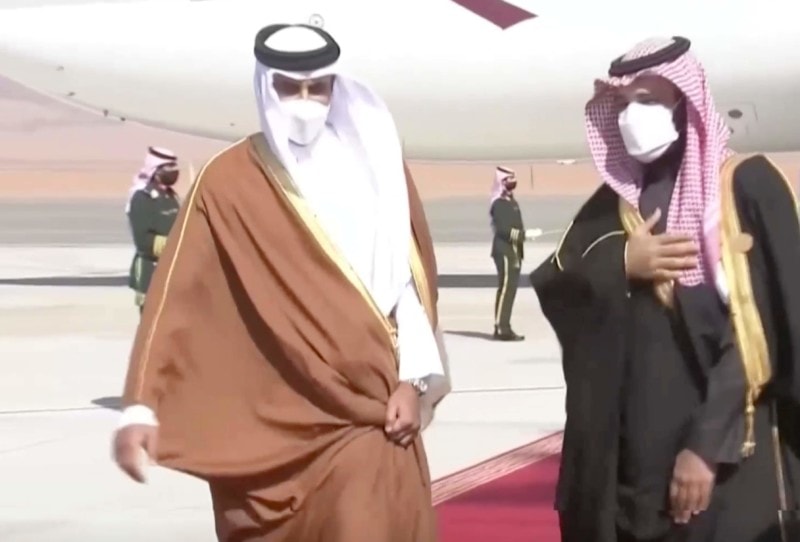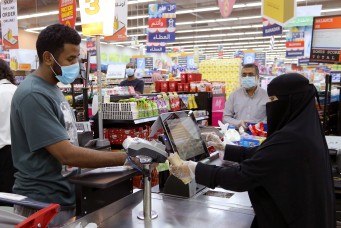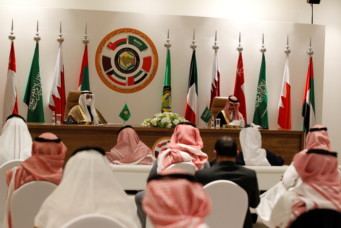“Reconciliation” in the Communiqué of the Gulf Cooperation Council

The author of this essay apologizes for the mistake in the above title. There is in fact no mention of “reconciliation” between Qatar, on the one hand, and Saudi Arabia, the United Arab Emirates, and Bahrain—member states of the Gulf Cooperation Council (GCC)—and Egypt, on the other, in the final communiqué issued by the GCC Summit held on January 5, 2021 in Al-Ula, Saudi Arabia.
This essay stresses the importance of understanding, cordiality, and integration between all Arab states, and thus welcomes and calls for the settlement of their disputes. However, it is not about the said “reconciliation” as such, but rather about the method adopted to reach it. Method is key to understanding the soundness of objectives and the solidity of achievements. Here, I consider that the method adopted by the summit is not conducive to definitively settling divergences nor does it conclusively achieve the objectives of the GCC’s common action. The subject of the essay will be addressed in three parts: the first analyzes the relevant paragraphs of the communiqué. The second discusses the thirteen conditions announced by the four boycotting countries in June 2017 as a prerequisite to lift their air, land, and sea embargo of Qatar, while the final part reflects on Egypt’s stand par rapport the announced reconciliation.
The communiqué’s introduction mentions the attending dignitaries from the GCC member states and the secretary-general and is followed by a 120-paragraph long statement arranged in twenty-two sections. Throughout the text, there is no specific mention of ‘reconciliation’ (musalaha) nor of the boycott of Qatar which persisted for almost four years. The term was only used in preparations for the summit and in the comments surrounding it. The fact that the summit was even convened with the Emir of Qatar himself in attendance implied that reconciliation was a tacit objective. Aside from the Emir of Kuwait, he was the only head of state in attendance and received a warm welcome from the Saudi Crown Prince upon arrival—another indicator of the spirit of reconciliation. As for the communiqué itself, it only alluded rather obliquely to “healing the rift” in relations between member states and to “reverting joint Gulf action to its natural course”.
Mutual understanding between the six member states of the GCC, including Saudi Arabia, the UAE, Bahrain and Qatar, are first apparent in the praise accorded to Qatar for organizing the elections to the country’s Shura Council next October. The communiqué welcomed the election of a Qatari citizen to the presidency of the Global Organization of Parliamentarians Against Corruption and applauded Qatar’s preparations to host the 2022 FIFA World Cup and for hosting a Horticultural Exposition. Mutual understanding also appears in the approval by the six member states, including Qatar, of ten extremely harsh paragraphs toward Iran. This is in addition to paragraphs in other sections of the communiqué condemning Iran’s support for various movements and a section on anti-terrorism that praises the decisions of some countries to list Hezbollah as a terrorist organization.
Let us pause at the section on Iran and question the true extent of consensus among GCC member states on the most extreme position towards that country. It is well known that Oman maintains cordial ties with Iran while Kuwait is keen to remain on non-hostile terms with its neighbor across the Gulf. It may then seem reasonable to question whether Qatar, along with Kuwait and Oman, actually concurs with Saudi Arabia, the UAE, and Bahrain in their extremist attitude toward Tehran. This casts a shadow of doubt on the communiqué as a whole. Paragraph 74 calls for any future international negotiations to lump and address Iran’s conduct in the region—its ballistic missile and drone programs, and its nuclear program—together in one basket, on the one hand, and calls for the participation of the Gulf Countries in such negotiations, on the other. The same paragraph underlines the necessity of nuclear non-proliferation and calls for pursuing efforts aimed at creating a zone free of weapons of mass destruction (WMDs) in the Middle East.
From the Gulf countries’ perspective, it is logical to tie the three issues of concern to them together and to ask to participate in any prospective U.S. negotiations with Iran. However, including nuclear non-proliferation and the establishment of a zone free of weapons of mass destruction means adding Israel and its nuclear arsenal to the equation. Would the United States put Israel’s nuclear weapons on the negotiating table and would the Israelis accept that? This is the same Israel that the UAE and Bahrain did not ask anything of relating to its nuclear stockpile when they concluded agreements with it just a few months ago. In addition, is it conceivable for Egypt not to participate in negotiations for a WMD-free zone when it was the progenitor of the initiative in the first place? It should also be noted that since 1974, Egypt and Iran, and then Egypt on its own, have repeatedly proposed to the annual General Assembly the importance of establishing a nuclear weapons free zone in the Middle East. Expanding the negotiations framework also means including regional parties, such as Iraq. An expansion in the negotiations framework is in Iran’s interest since among the new prospective parties there are some which would be sympathetic to Tehran’s position or not partake in international pressures on it.
The section of the communiqué on the Palestinian question is five paragraphs long and can be summarized as committing to the Arab Peace Initiative, to the resolutions adopted within the international legal framework, and to the two-state solution—which calls for a Palestinian state with East Jerusalem as its capital. The paragraphs on Palestine reject the annexation by Israel of settlements in the West Bank and also underscore the importance of continued funding and support for the United Nations Relief and Works Agency for Palestine Refugees (UNRWA) so that it continues providing its services to the Palestinian people. These are strong passages, but they invite us to wonder about their credibility. The UAE’s agreement with Israel did not include a single word about the international legal framework. The Emirates also hosted last November a delegation from the Israeli settlements, which announced that it had finalized important commercial deals with Emirati companies.
The lofty rhetoric about Palestine also rests uneasily with the lavish praise, mentioned several times in the communiqué, for the United States, the great power that moved its embassy in Israel to Jerusalem, closed its consulate in East Jerusalem, announced that Israel’s annexation of settlements was lawful, and cut funding with the intent of terminating the work of UNRWA. Finally, the strong paragraphs were adopted in the presence of the former U.S. president’s son-in-law, the chief architect of all the hostile measures against the Palestinian people that were meant to undermine the goals mentioned in this section of the communiqué.
Conditions of Boycott Removed?
We move to the second part. There is no mention in the communique of what the attendees agreed to or even discussed with regard to the 13 conditions declared when the boycott of Qatar was first imposed. The four states that launched the embargo had announced in June 2017 that Qatar must accept all 13 conditions within ten days. Among those conditions were the following: Qatar must reduce its diplomatic representation with Iran; cease military and intelligence cooperation with Iran; close the Turkish airbase; cease any military cooperation with Turkey; cut state ties with all terrorist, sectarian, or ideological organizations, in particular the Muslim Brotherhood, ISIL, Al-Qaeda, Al-Nusra Front, and Hezbollah; accept the lists of terrorist groups designated by the four boycotting countries; and close the Al-Jazeera news network and its associated channels. In an article published at the beginning of July 2017, I anticipated that Qatar would not give in to the demands, which were not realistic. At least based on the communiqué, the countries boycotting Qatar appear to have failed in their attempt. Success in implementing any policy requires the definition of achievable goals.
The third part of this article is about Egypt’s attitude regarding the boycott and reconciliation. It is striking that GCC officials only referred to the “Gulf reconciliation”, as if Egypt were not a principal party to the boycott. This observation is made regardless of the merits of the boycott. An invitation to attend the summit was extended to the Egyptian president, which he rightly declined, but Egypt was represented at the summit by its foreign minister. This is understandable given Egypt’s relationship with Saudi Arabia and the Emirates. It is only unclear in which capacity it attended, whether as a guest, observer, or witness. What is not understandable is Egypt’s signature on the summit’s communiqué. Communiqués published at the end of conferences are not usually signed. The GCC member states chose to have this particular communiqué, supposed to list the “understandings” they reached, signed. So be it. But what does Egypt have to do with it? Egypt is not among the states on whose behalf the communiqué was issued. This is purely a GCC communiqué.
Settling disagreements between Arab states is in their best overall interest. Egypt may therefore wish to enter direct negotiations with Qatar, without eluding any issues or sweeping them under the rug. What transpired with Saudi Arabia having negotiated with Qatar directly before the summit may justify such an approach. Qatar and Saudi Arabia reached an agreement to restore all their links to what they were before the boycott, including diplomatic relations, and to open their borders. This bilateral agreement was also not mentioned in the statement published by the summit.
Most likely, this is what caused the Saudi, Qatari foreign ministers, and the Emirati minister of state for foreign affairs to interpret the results of the summit differently. The Saudi minister emphasized that what occurred in the summit at AlUla was a “complete resolution of the dispute with Qatar and a full return to diplomatic relations.” He mentioned that the four states collectively agreed to normalize relations with Qatar, including commercial air flights. The Qatari foreign minister agreed with his Saudi counterpart, saying that the future steps are “a return to natural diplomatic relations as they were before the crisis on the part of all parties,” adding that “we are not about to impose conditions by one country on another.” He then said that the dispute about Al-Jazeera was not discussed during the negotiations over reconciliation with the Arab quartet. In contrast, the Emirati minister of state for foreign affairs declared that the steps to be implemented within a week after the agreement “include practical steps of airways, maritime shipping, and commerce.” He added that “as for other issues such as resuming full diplomatic ties, they will take time given persistent geopolitical disputes such as Turkey and Islamist groups like the Muslim Brotherhood; “some matters are easier to resolve, and some will take a longer time.”
The discrepancy between the Saudi and Qatari ministers’ rhetoric, on the one hand, and the Emirati minister’s declaration speaks for itself and does not require further comment.
Disputes between states are natural in the international system and should not be seen as aberrant even when they arise among states that share a common culture and region, such as the Arab states. What is deeply wrong is that these states follow, time and again, the same approach: one that does not resolve disputes but rather leaves them open only to reemerge at later times.
Arab states need to innovate mechanisms to settle their disputes with sincerity and candor. These should include political mechanisms of extended, detailed negotiations, aimed at reaching compromises without sacrificing essential interests.
Ibrahim Awad is professor of practice of global affairs and the director of the Center for Migration and Refugee Studies in the School of Global Affairs and Public Policy at the American University in Cairo. From 2005 to 2010, he acted as director of the International Migration Programme at the International Labour Organization (ILO), Geneva, and prior to that, between 2005 and 2010, he was the ILO’s director for the North Africa sub-regional office. His most recent publications include “The Challenge of Global Governance in the Sustainable Development Agenda,” “The Multiple Levels of Governance of International Migration:Understanding Disparities and Disorder,” and “Towards a Joint Approach to Migration and Asylum in the Euro-Mediterranean Space,” to name a few.
Read MoreSubscribe to Our Newsletter





